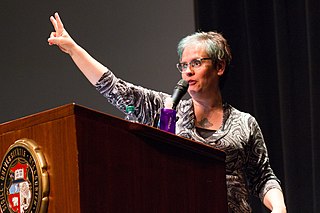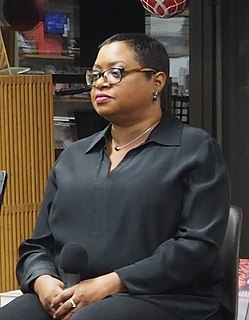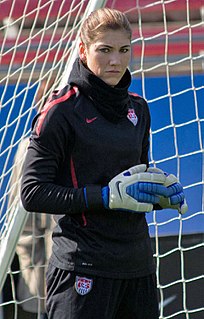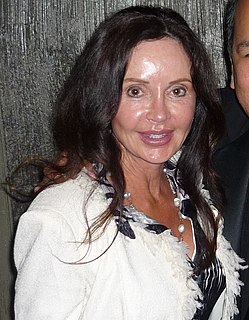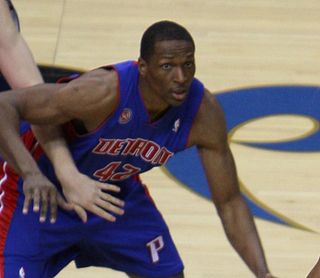A Quote by Solange Knowles
Our mother always taught us to be in control of our voice and our bodies and our work, and she showed us that through her example. If she conjured up an idea, there was not one element of that idea that she was not going to have her hand in. She was not going to hand that over to someone. And I think it's been an interesting thing to navigate, especially watching you do the same in all aspects of your work: Society labels that a control freak, an obsessive woman, or someone who has an inability to trust her team or to empower other people to do the work, which is completely untrue.
Quote Topics
Always
Aspects
Been
Bodies
Control
Control Freak
Element
Empower
Example
Freak
Going
Hand
Her
Idea
Inability
Interesting
Interesting Thing
Labels
Mother
Navigate
Obsessive
Other
Our
Over
People
Same
She
Society
Someone
Taught
Taught Us
Team
Thing
Think
Through
Trust
Untrue
Up
Us
Voice
Watching
Which
Woman
Work
Your
Related Quotes
Our souls, shamewounded by our sins, cling to us yet more, a woman to her lover clinging, the more the more. She trusts me, her hand gentle, the longlashed eyes. Now where the blue hell am I bringing her beyond the veil? Into the ineluctable modality of the ineluctable visuality. She, she, she. What she?
Reality is a harsh mistress. She demands our honesty. She demands our work. She demands that we give up comforts, that we let ourselves feel pain, that we accept how small we are and how little control we have over our lives. And she demands that we make her our top priority. But she is more beautiful, and more powerful, and more surprising, and more fascinating, and more endlessly rewarding, than anything we could ever make up about her.
Where woman has taken her place in business she has found her method ready-shaped for her, and following that, she does her work,if with a certain amount of monotony, yet without undue fatigue. Her hours are fixed, and as a rule she gets needful change of scene as she goes to her business and returns to her home or the place where she lives. But the "home- maker" has not, nor can she have, any such change, and her hours are always from the rising of the sun beyond the going down of the same.
Nearly every morning, a certain woman in our community comes running out of her house with her face white and her overcoat flapping wildly. She cries out, "Emergency, emergency," and one of us runs to her and holds her until her fears are calmed. We know she is making it up; nothing is has really happened to her. But we understand, because there is hardly one of us who has no been moved at some time to do just what she has done, and every time, it has taken all our strength, and even the strength of our friends and families, too, to keep us quiet.
Was it not most meet that a woman should first see the risen Saviour? She was first in the transgression; let her be first in the justification. In yon garden she was first to work our wo; let her in that other garden be the first to see Him who works our weal. She takes first the apple of that bitter tree which brings us all our sorrow; let her be the first to see the Mighty Gardener, who has planted a tree which brings forth fruit unto everlasting life.
When I looked at [Fannie Lou] Hamer and that speech it seemed to me that she had to be the bravest woman ever, to come before that body and to assert her rights, when she knew that she was going lose that battle. But she did it anyway, because she knew she was speaking not just for herself and for that day, but for me, and for all the other young women who were coming behind her. She didn't know our names, but she was working for us. I find that incredibly empowering.
She stared at herself in the mirror. Her eyes were dark, almost black, filled with pain. She'd let someone do that to her. She'd known all along she felt things too deeply. She became attached. She didn't want a lover who could walk away from her, because she could never do that - love someone completely and survive intact if her left her.
From the first time he'd met her, he'd sensed an air of contradiction about her. She was very much a woman, but still retained a waiflike quality. She could be brash, and at times deliberately suggestive, yet she was painfully shy. She was incredibly easy to get along with, yet she had few friends. She was a talented artist in her own right, but so self-conscious about her work that she rarely completed a piece and preferred to work with other people's art and ideas.
Sarah Brown is a sweetie to work with. She's a good actress. She's gutsy and she comes in and she knows her lines. She's just terrific. Sometimes I forget how young she is, because she truly walked right in and took the territory and was able to hold her own with people who've been here for so many years. To be able to pull that off [for someone who had never been on a show], I really give the woman a lot of credit. She's done great.
She laughs and looks out the window and I think for a minute that she's going to start to cry. I'm standing by the door and I look over at the Elvis Costello poster, at his eyes, watching her, watching us, and I try to get her away from it, so I tell her to come over here, sit down, and she thinks I want to hug her or something and she comes over to me and puts her arms around my back and says something like 'I think we've all lost some sort of feeling.
She [my mother] was the force around which our world turned. My mother was propelled through the universe by the brute force of reason. She was the judge in all our arguments. One disapproving word from her was enough to send us off to hide in a corner, where we would cry and fantasize our own martyrdom. And yet. One kiss could restore us to princedom. Without her, our lives would dissolve into chaos.
I was raised by a lady that was crippled all her life but she did everything for me and she raised me. She washed our clothes, cooked our food, she did everything for us. I don't think I ever heard her complain a day in her life. She taught me responsibility towards my brother and sisters and the community.
My mom would never let us quit. She always taught us the importance of sticking with it, even when times are tough. We didn't just hear her, we watched her. I know what to do because she led the way. She showed us that if you put your mind to it, you can accomplish the world. No matter where you're from and what you're up against.



